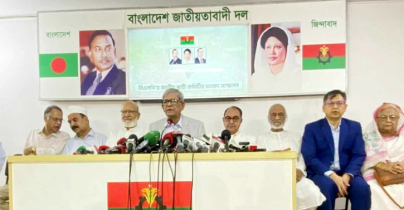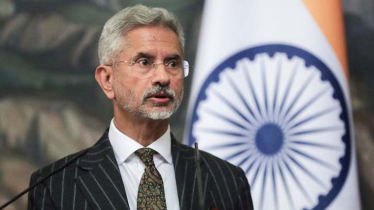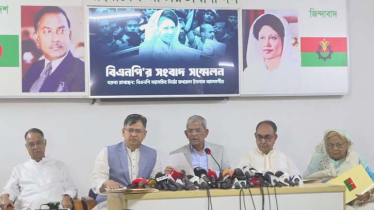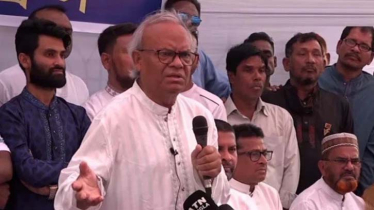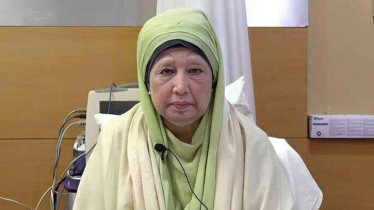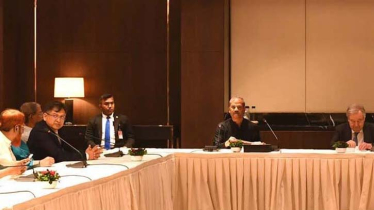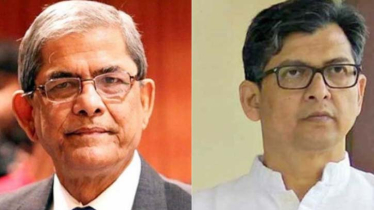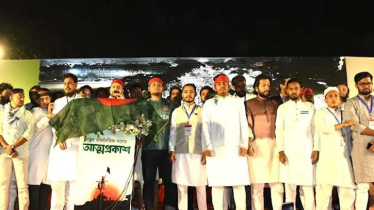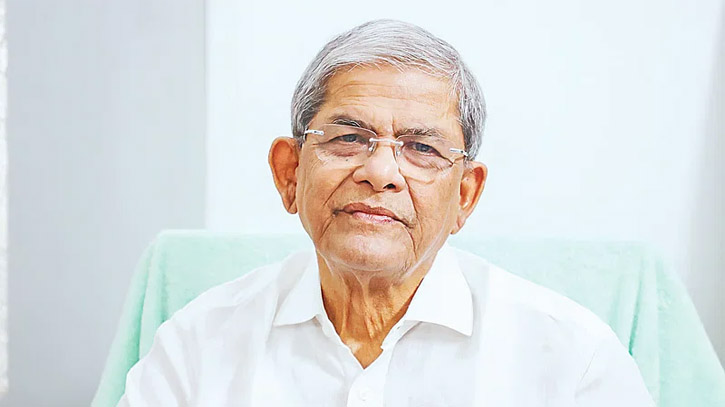
Photo : Collected
BNP Secretary General Mirza Fakhrul Islam Alamgir on Wednesday said the country's most urgent need is now a free, fair and acceptable election, as various conspiracies and campaigns are being orchestrated against the nation.
Talking to journalists at his residence in Thakurgaon district town, the BNP leader said that the proportional representation electoral system is not feasible in the context of Bangladesh.
“We’re not concerned about Awami League’s participation in the upcoming election. Our worry is about when the next election will be held, as the current interim government has not yet presented any roadmap for the polls,” he said.
Fakhrul also said the government has formed a committee to reform the electoral system, which has already sent the BNP a letter. “We’re working on it and will provide our feedback very soon. What we have emphasised is that, in the current context, what is most needed in Bangladesh is a free, fair and acceptable election.”
He said they have repeatedly talked about the need to make the electoral system suitable for elections and create a level playing field. “An elected government and an elected parliament are crucial to addressing the country's political and economic crises. This is the point we have been stressing again and again."
The BNP leader said India, which has provided shelter to Sheikh Hasina, the main architect of fascism, is carrying out various harmful campaigns against Bangladesh. "We should be cautious about this, or else, as a nation, we will face great danger.”
Fakhrul said the number of advisers to the interim government has reached 21, as there are no specific rules regarding the number of advisers. “They can be appointed as needed to run the country,” he explained.
The BNP leader said the decision on who will be appointed as an adviser, or who will not, is entirely the responsibility of the Chief Adviser, Prof Dr Muhammad Yunus. “However, I would like to request him to be careful in ensuring that controversial people are not inducted into the advisory council,” Fakhrul said.
Stating that the fascist Awami League government has successfully divided the nation, the BNP leader said, "We want to eliminate this division and create a united nation. In a democratic society, there will be different opinions. But on the fundamental issues of Bangladesh's independence, sovereignty, democracy, and people's rights, there must be unity.”
He also said the interim government must be given time, as it is not possible to clear 17 years of mess in 17 days or 17 months. "For this, those of you who are in the government have less responsibility. When a democratic government comes, that parliament will carry out those tasks.”
The BNP leader also said the interim government should not focus on all reforms, but rather only on those necessary for the election. "The rest of the reforms should be carried out by the elected parliament. That’s why we’ve been saying that the election must be held within a reasonable time frame, and the government must present a roadmap for it."
He explained that the main responsibility of this government is to create a level playing field for the election, ensuring that everyone can cast their vote and participate in the process.
“The issue of vote rigging must be eradicated, and measures should be taken to ensure that. At the same time, impartial people should be appointed to oversee the election process, the judiciary must be made independent, and the administration must be neutral,” Fakhrul observed.
He also pointed out that it is a very difficult situation for ordinary people to cope with the rising prices of daily essentials.
"The current government should give more attention to this issue. We hope that there are highly capable individuals within the government. I expect the government to take all the necessary steps to bring the market back to normal," he added.
"With exercises, we can prevent, rather than cure," said 34-year-old participant and local village official Rizky Firmansyah. "It's better like that I think, because it's better for us to anticipate than to have things that we don't want to happen."
The drills simulated a repeat of the magnitude 9.2 earthquake which struck off the west coast of Indonesia's Sumatra island on December 26, 2004, sparking giant waves that killed over 200,000 people in 14 countries.
The UN-organised drills saw hundreds of students and volunteers run to safe houses, including one four-storeys high, when the mock quake struck.
- 'Extremely important' -
The drills -- which took place in two villages as hundreds of observers watched -- were part of a tsunami summit of experts organised by the United Nations cultural agency (UNESCO). Nearly 20 years on from the disaster, the UN is trying to get 100 percent of coastal communities prepared for a repeat tsunami by 2030.
"We must ensure the next generation remains informed, prepared, and resilient," Ardito Kodijat, a UNESCO official and head of the Indian Ocean Tsunami Information Centre, told AFP.
"Ensuring community preparedness requires regular drills." Indonesia is one of the most disaster-prone nations on earth. The archipelago nation lies on the Pacific "Ring of Fire", where tectonic plates collide and many of the world's volcanic eruptions and earthquakes occur.
UNESCO experts say the world is much safer today from the threat of massive tsunamis due to early warning systems that were lacking in 2004.
But the agency has also warned coastal communities to stay alert. "While we have made significant strides, the nature of this hazard requires us to remain vigilant," Vidar Helgesen, executive secretary of UNESCO's intergovernmental oceanographic commission, told delegates in Banda Aceh on Monday.
Indonesia's meteorology, climatology and geophysics agency (BMKG) also took part in the exercises meant to test operating procedures, communications and evacuation preparedness. Many people are believed to have lost their lives in countries around the Indian Ocean basin because of a lack of warning and preparedness.
So such drills are vital for locals, even though tsunamis are infrequent. "This is extremely important for this community," said Cutraa Rasmanidar, a 21-year-old graduate working as a volunteer.
"I think it's important because it's reflective, so we can remember what happened in the past."
Messenger/JRTarek

